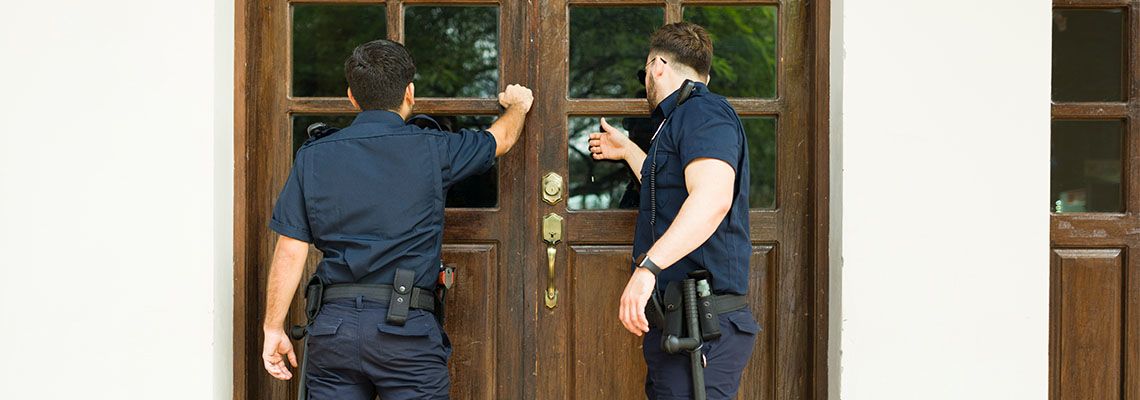
Probation Search Conditions
Probation is an alternative to incarceration that allows convicted individuals to live in their communities under supervision. The length of probation varies depending on the crime, but it always comes with certain conditions that must be met.
These conditions also vary from person to person, depending on their crime and the judge's orders. One crucial condition is how their searches and seizures will be carried out during their probation period. This guide aims to provide a comprehensive understanding of probation search conditions.
Probation Search Conditions
Thanks to the Fourth Amendment, individuals have the right to be free from unreasonable searches and seizures by the government. However, this protection is somewhat limited for probationers.
As a condition of probation, an individual may be subject to warrantless searches by their probation officer or law enforcement officers. These searches can occur at any time, without prior notice, as long as they are deemed reasonable.
The reasoning behind this is that those on probation have a reduced expectation of privacy due to their criminal history and the fact that they are under supervision as part of their sentence. These searches aim to ensure compliance with the conditions of probation and uncover any illegal activities.
Types of Search Conditions
When going over possible case outcomes with our defense clients, we're often asked about the different types of probation search conditions. Understanding these conditions is essential, whether you're on probation or know someone who is. In our commitment to provide clear and concise information, we've outlined the three types of probation search conditions for you:
Anytime, anywhere: This is the most stringent condition. Here, a probationer agrees to be searched at any time by a probation officer or police officer, without the need for suspicion or probable cause.
Reasonable Suspicion: This type is a bit more nuanced. The probationer agrees to searches, but the officers must have a "reasonable suspicion" that the probationer has committed a crime or possesses contraband. It's not just an open ticket for searches; there needs to be a valid reason.
Contraband Search Condition: This type is quite specific. An officer can search a probationer only if there's reason to suspect that the individual possesses drugs, weapons, or both. This condition is primarily focused on searching for drugs or weapons, rather than evidence of other crimes.
Remember, these conditions are complex, and navigating them can be challenging. But don't worry, we're here to help. If you have questions or concerns about probation search conditions, don't hesitate to reach out to us. We're here to give you the personalized attention your case deserves.
The Role of Probation Officers and Police Officers in Probation Searches
Probation officers and police officers play a vital role in probation searches. When conducting these searches, they must have reasonable suspicion, which requires them to have specific facts and circumstances that would lead a reasonable person to believe that a probationer is engaged in illegal activity or has violated the terms of their probation. This ensures that searches are conducted lawfully and respects the rights of the probationer.
Officers need to follow proper procedures and obtain necessary authorization before searching a probationer's property, as warrantless searches without reasonable suspicion would infringe on their privacy rights. By adhering to these guidelines, officers can maintain the integrity of the probation system while upholding the principles of justice and fairness.
Probation vs. Parole
While both probation and parole involve supervision in the community, they are distinct concepts in the realm of criminal justice. Probation is a penalty imposed by a judge at the time of sentencing, serving as an alternative to imprisonment. On the other hand, parole is a supervised conditional release granted to prisoners after they have served part of their sentence in prison. It's important to note that parole is granted by a parole board, not by a judge, and is typically considered for inmates who've demonstrated good behavior during their incarceration period.
Therefore, the main difference lies in when each occurs in the criminal justice process: probation occurs as part of the sentencing, whereas parole comes into play after a portion of the prison sentence has been served.
Probation Search Impact on Families and Communities
Probation search conditions not only affect the probationer but also have an impact on their families and communities. The constant intrusion of privacy, potential for arrest or detention, and restrictions on movement can be a significant source of stress and strain for family members. Additionally, these searches may cause tension within the community, especially if they are perceived as targeting certain groups unfairly.
As a criminal defense and family law firm, we understand the importance of addressing these broader impacts and advocating for fair and reasonable probation search conditions. We believe that everyone deserves to be treated with dignity and respect, regardless of their criminal history.
Understand Your Probation Search Conditions With Legal Counsel
It's possible to object to search conditions during the sentencing hearing. However, it's crucial to have legal counsel present to navigate this complex process. That's where we come in. At Haskett Williams Monaghan Attorneys at Law, we're experienced in handling these matters and can guide you through every step of the way.
So don't hesitate to get help when you need it. Serving clients throughout Bend, Redmond, Sun River, Prineville, and Sisters, we're just a phone call away. Contact us today to schedule a consultation with one of our probation attorneys.

